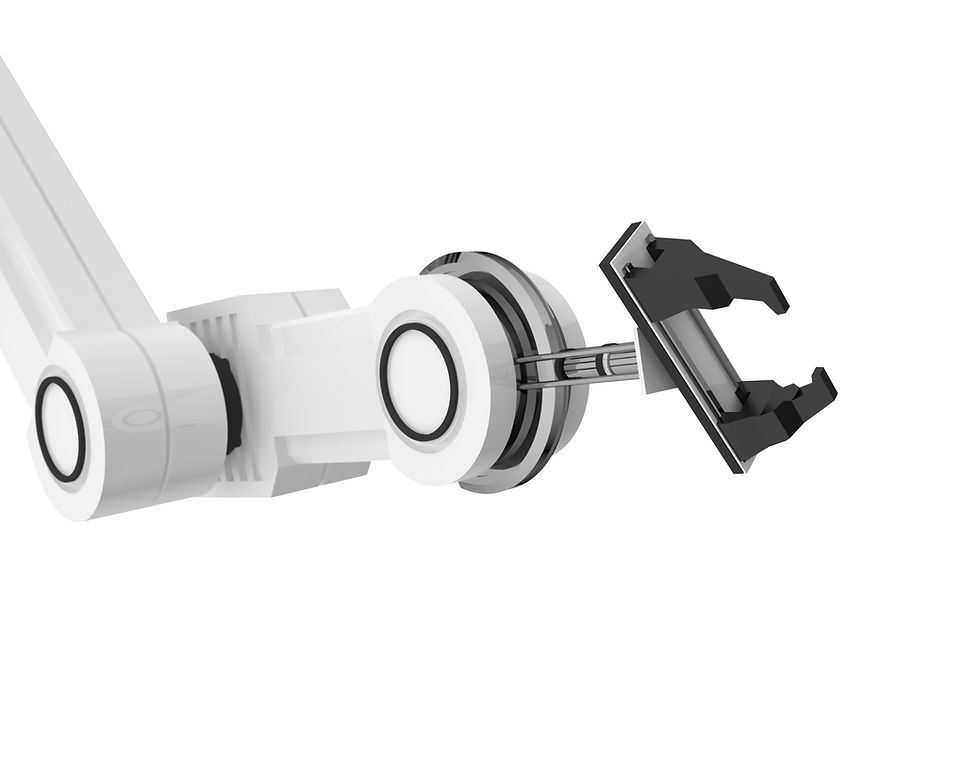Technologies for Smart Enterprise
- Karan Kamal
- Oct 5, 2021
- 4 min read
Thus far, the ability to leverage both production, operational and business data was limited by a gamut of factors which is fast changing with the advent of digital technologies of Industry 4.0.
The increasing accessibility, affordability and ease of deployment of such technologies are making it possible to capture, ingest, analyze and act on data at scale.
Outlined below are some of key technologies that are reshaping the future of global enterprises and accelerating the adoption of Industry 4.0
Robotics: Many industries have long used robots in their manufacturing/ production activities to automate manual efforts in repetitive tasks. However, robots are now evolving for even greater utility, becoming more autonomous with cognitive abilities to take independent decisions and work more flexibly alongside human operators. Known as Collaborative robots, Co-bots can be leveraged to augment assembly line production efficiency and simultaneously enhance worker safety
Holmgrens, a Swedish injection moulding specialist, deployed ABB’s 6 axis robot into its production line and was able to achieve 100% production increase with significant worker automation
Internet of Things (IoT): A key component of industry 4.0 is the IoT, that reduces the complexity of M2M communication and allows organizations to collect and analyze data through strategically placed sensors. Industrial IoT facilitates the connectivity and transparency of data, machines, and people in the manufacturing enterprise. Every aspect of manufacturing operation can be connected through IoT, and the multi-directional communication capability across networked assets in the enterprise can help unlock a wide range of use cases ranging from Condition Monitoring, Predictive Maintenance and Complete Automation
Artificial Intelligence: As companies evolve along the i4.0 maturity paradigm, capabilities such as predictive analytics and predictive maintenance become critical, and this is where AI finds its importance in the smart factory environment. Companies today are using machine learning to analyze vast volumes of data to identify patterns and trends that impact production efficiency and quality. AI is a powerful tool that can provide full visibility into business and operational processes. As adoption of AI matures, self-learning algorithms will also be deployed to automate critical decision-making tasks
According to Accenture, AI could add approximately US$3.7 trillion to the manufacturing sector by 2035.
As per a research study by McKinsey, , predictive maintenance using IoT can reduce maintenance costs of factory equipment by 10–40% and bring down equipment downtime by as much as 50%.
Cloud: For any industry, a rigid IT infrastructure hinders innovation. With an enterprise-level cloud platform in place, it facilitates effective data storage, processing and sharing within and outside the company boundaries, driving enhanced analytics and creating new business models. Cloud storage also allows for remote access and monitoring of all data and machine operating systems, giving great visibility into operations and efficiencies
Big Data & Analytics: Used for real-time decision-making, big data plays a key role in creating value. By leveraging data analytics at scale, manufacturing companies will be able to reduce their downtime while increasing their overall efficiency. Moreover, advanced analytics acts as an enabler for predictive maintenance and will soon be replaced by prescriptive analytics. This technology will allow for automated decision making and also allow enterprises to take full advantage of the cost reductions and production efficiencies enabled by automation of work
Augmented Reality: AR can transform how products are designed and manufactured. Further, activities such as training, operator/ device control can also be significantly revolutionized. Currently in early stages of adoption, display devices and immersive environments will soon become mainstream and advance how workers interact with their devices. A few of the application areas for AR in Industry 4.0 include Operations, Maintenance & Remote Assistance, Training, Quality Control as well as Safety Management
System Integration: The cornerstone of industry 4.0 is connectivity and convergence. Horizontal integration between various functions in the plant and vertical integration across shop floor and top floor plant operations increase transparency, reduce errors and speed up manufacturing and production process
Cyber security: As the industrial systems are becoming more and more connected, cyber resilience is critical to ensuring data integrity and prevent any attacks that target vulnerable equipment and devices in the connected network
It is important to note that Industry 4.0 is not solely constituted by deploying these digital technologies in silos but rather building the ability to integrate and leverage their combined potential as enablers to realize the ‘smart enterprise of the future’.
FutureSense360: Your Smart Enterprise Partner
FutureSense360 is in a unique position to address your current smart enterprise transformation requirements through our comprehensive technology solutions and platform portfolio.
Our technology IP is targeted to provide you the flexibility and speed in development of new solutions based on the evolving context of your organization and ensuring fastest time to business value.
FutureSense360 has invested in building highly skilled implementation teams across each competency area. Our implementation services are holistic and include:

Conceptualization With a strong mix of business, technology and engineering experience, we can partner with you to conceptualize and co-innovate new products and solutions
Design FutureSense360 can support in developing solution blueprints and recommend optimal technology stack and design to help realize your objectives in the shortest, most efficient and cost-effective manner
Development We leverage our existing plug and play solutions to accelerate the development process
Testing We adopt Agile, Scrum and DevOps tools to enhance your testing and QA requirements
Integration Our microservices and API based approach ensure your new initiatives easily integrate with the existing technology ecosystem
FutureSense360 is also a leading provider of innovative ready -to -deploy solution accelerators, platforms and IP to enable a Smart Enterprise



Comments